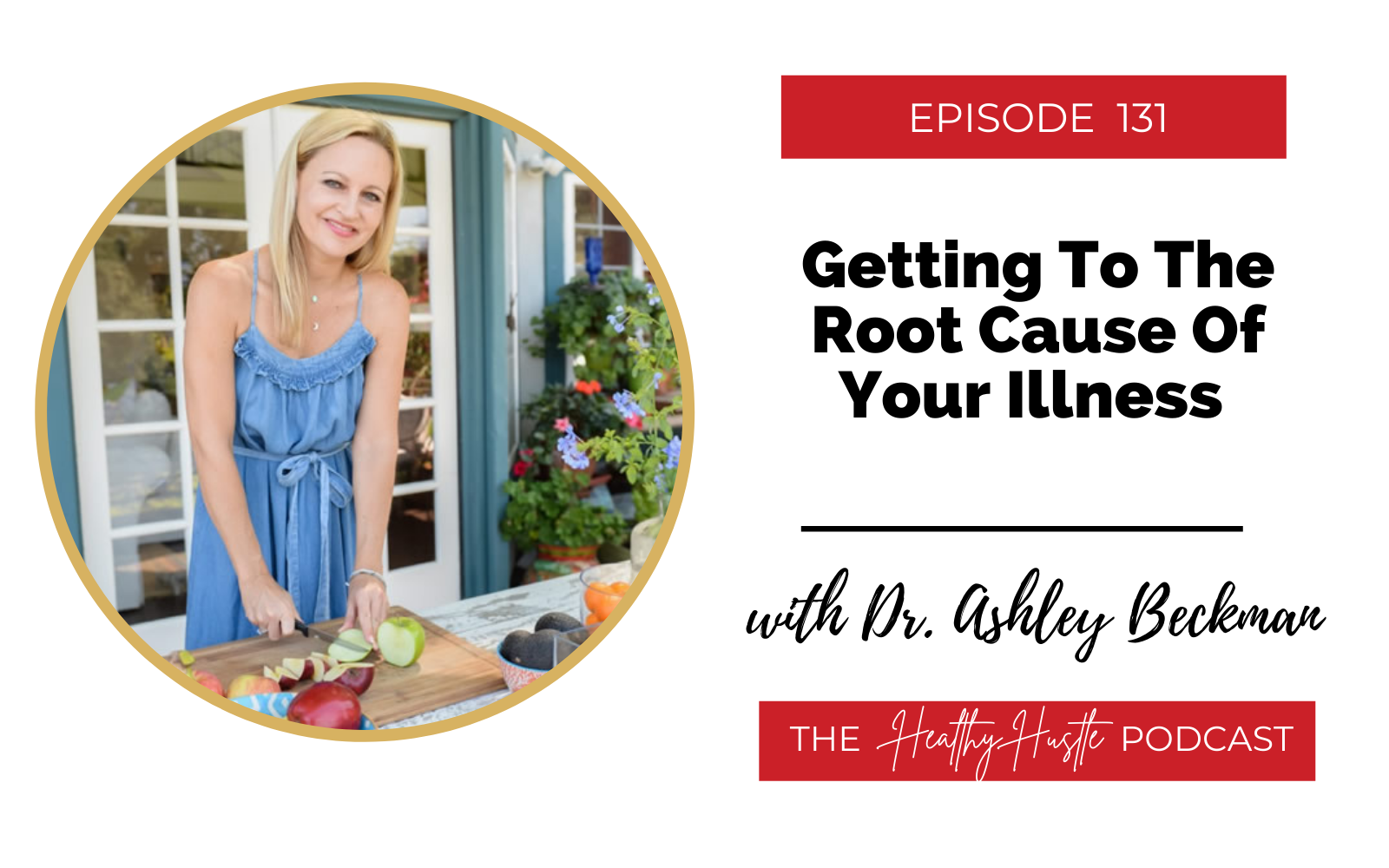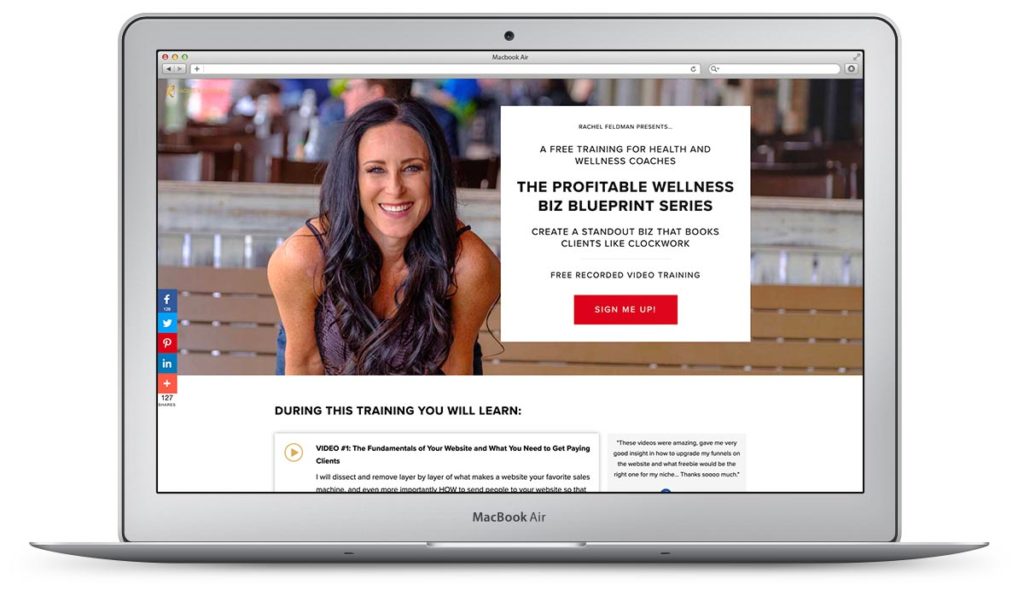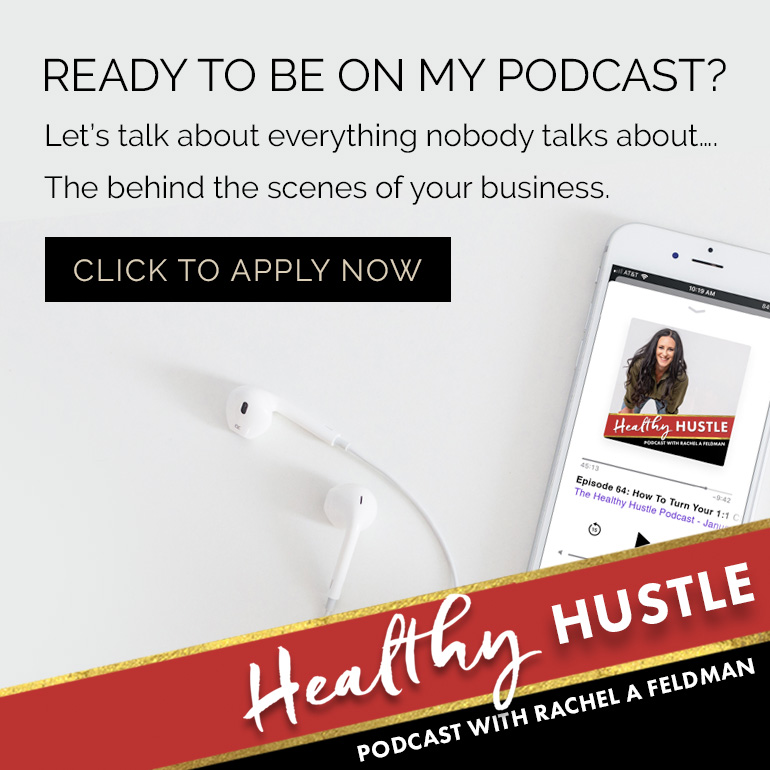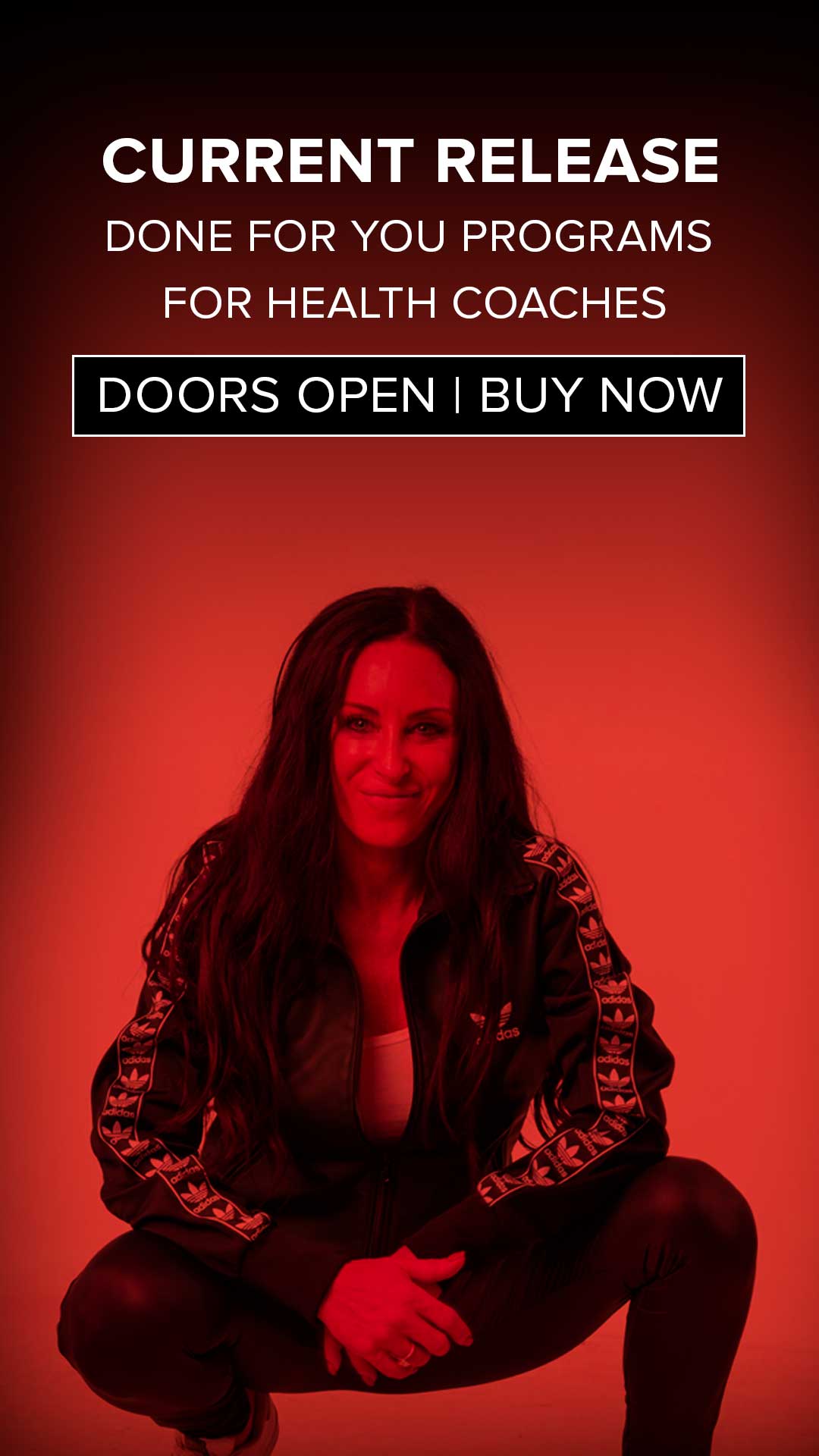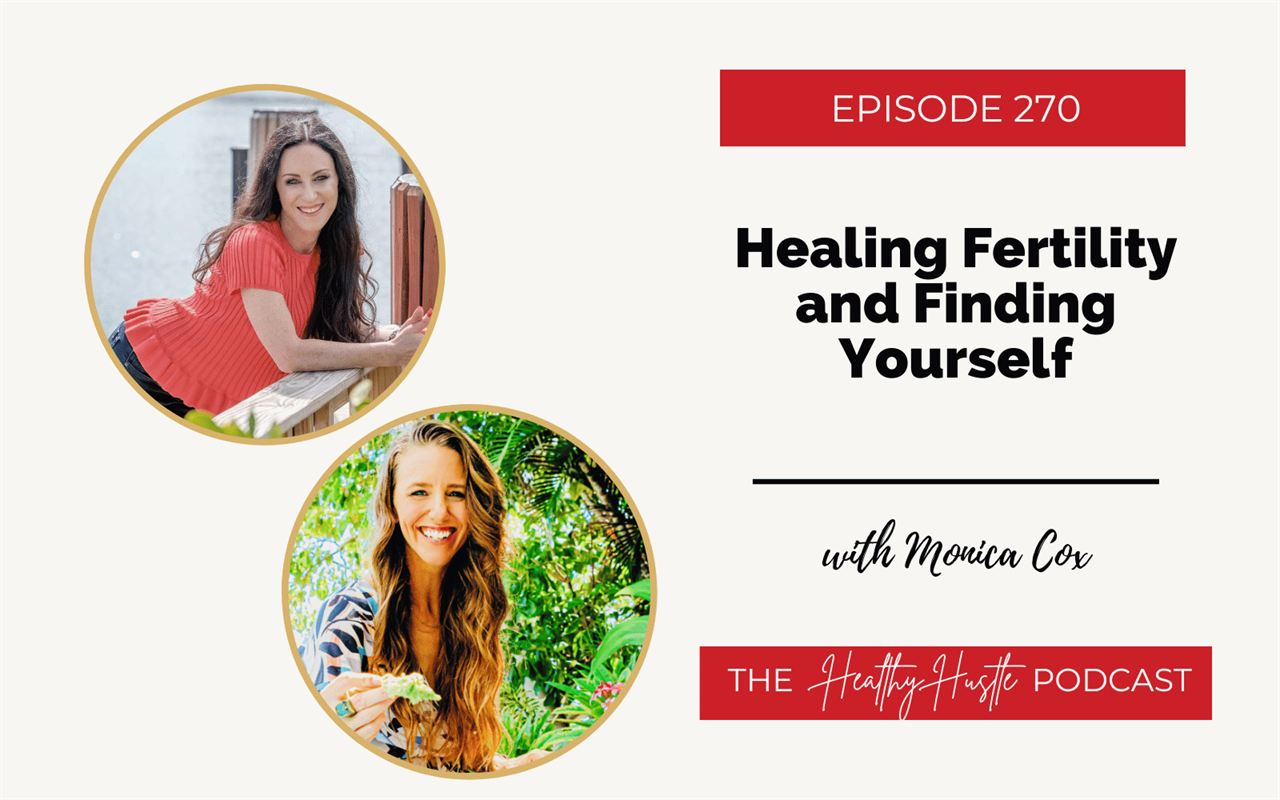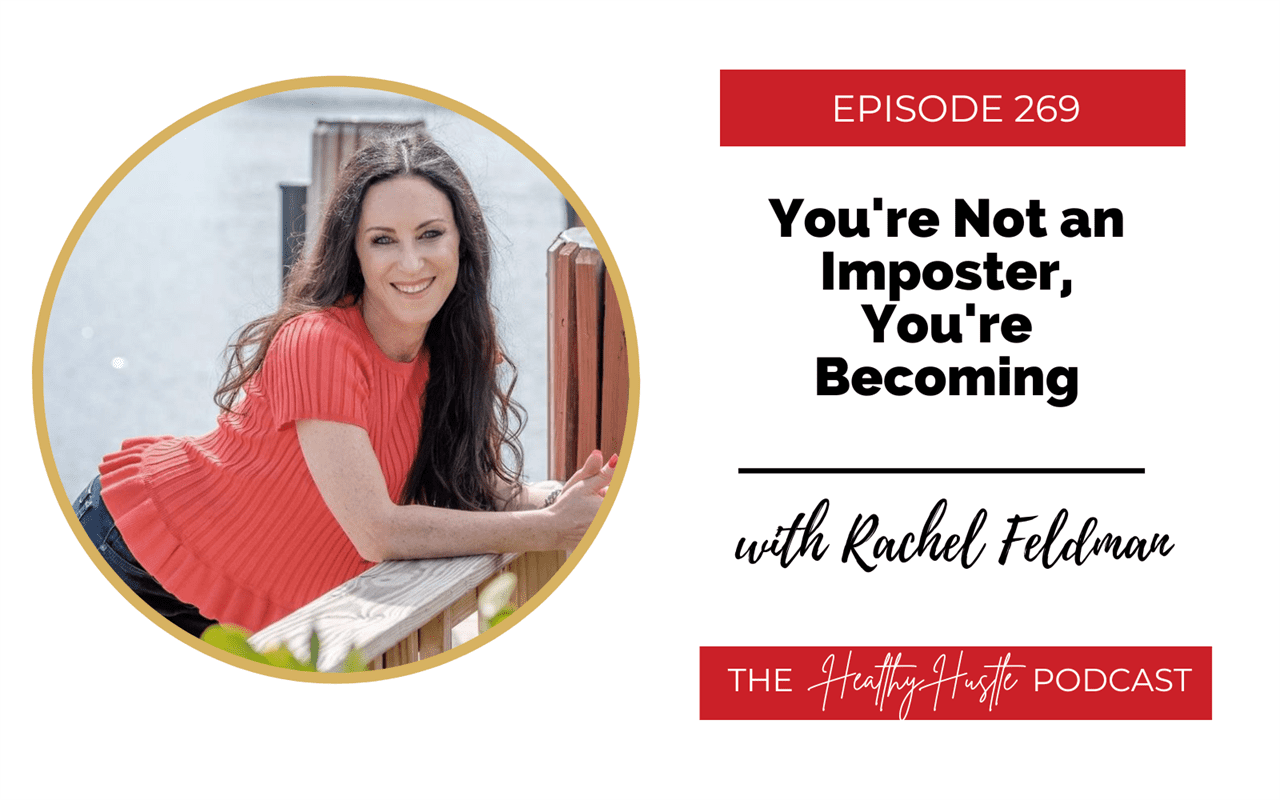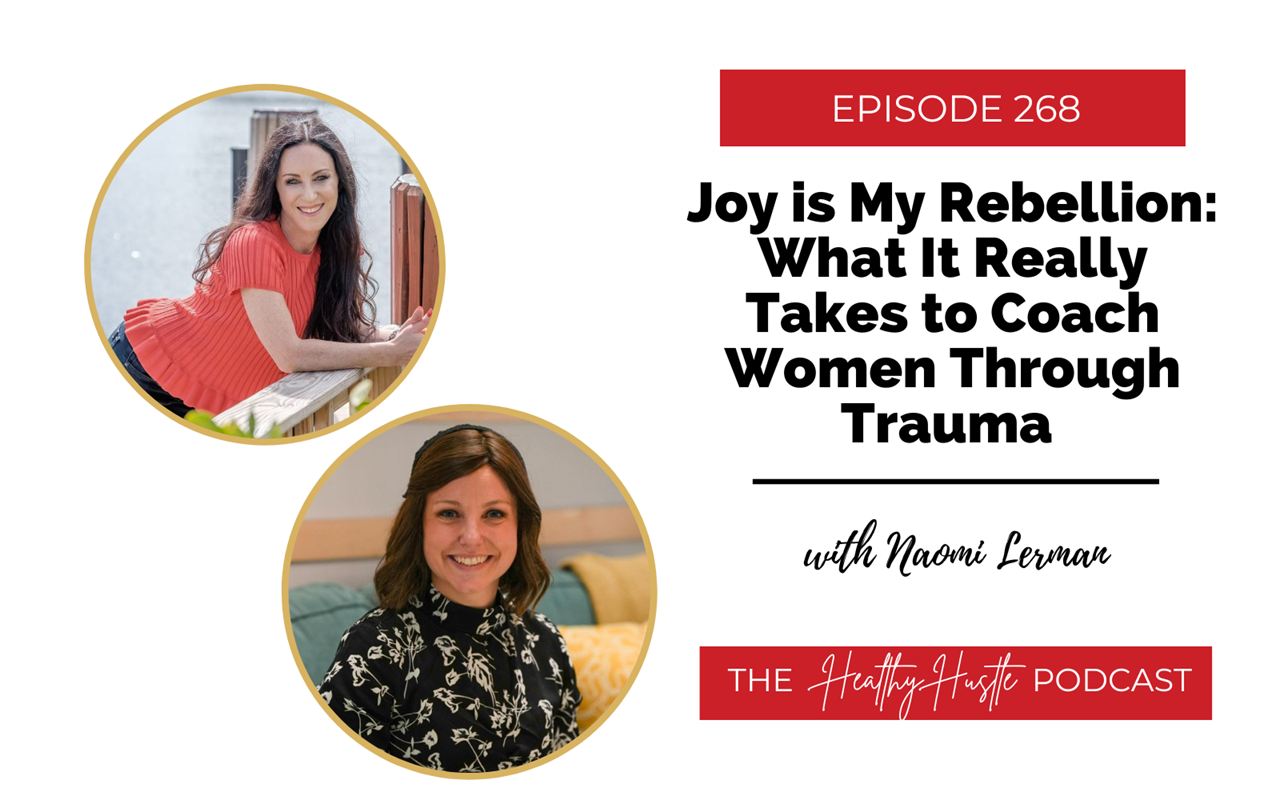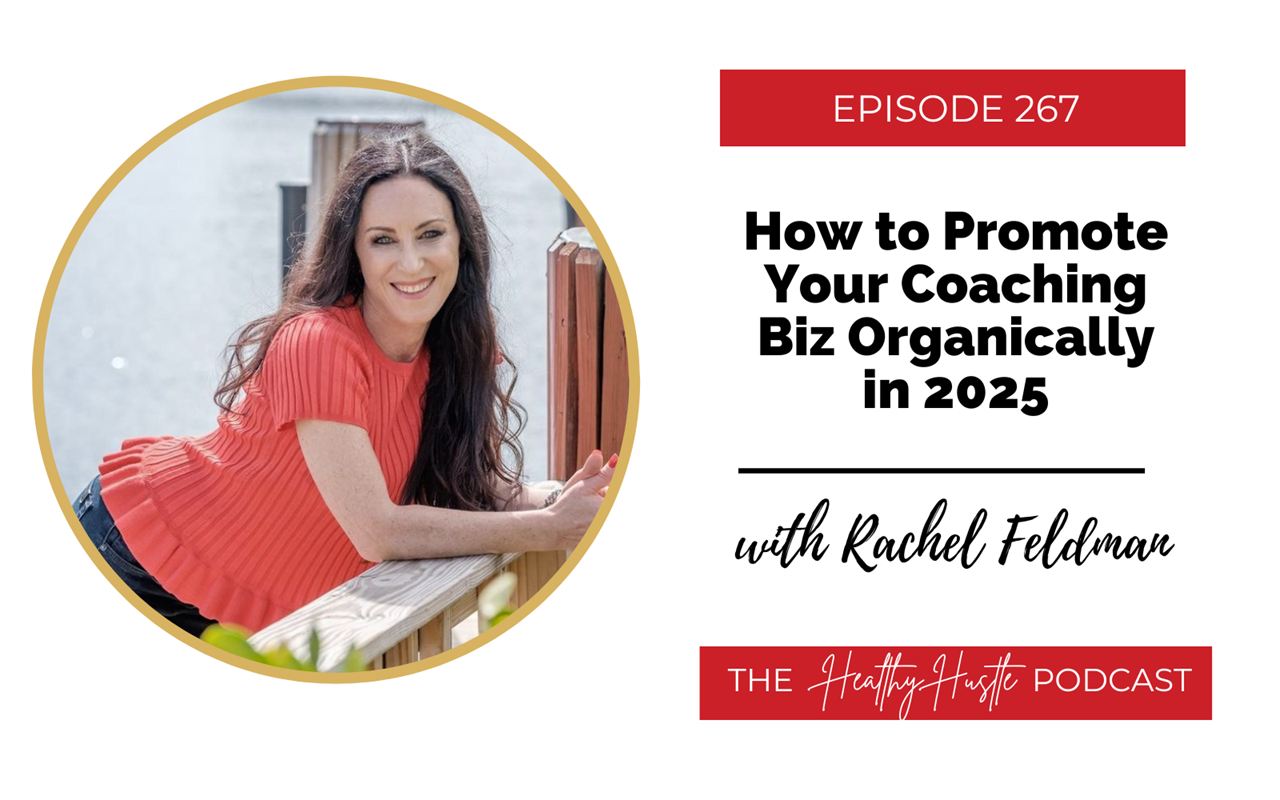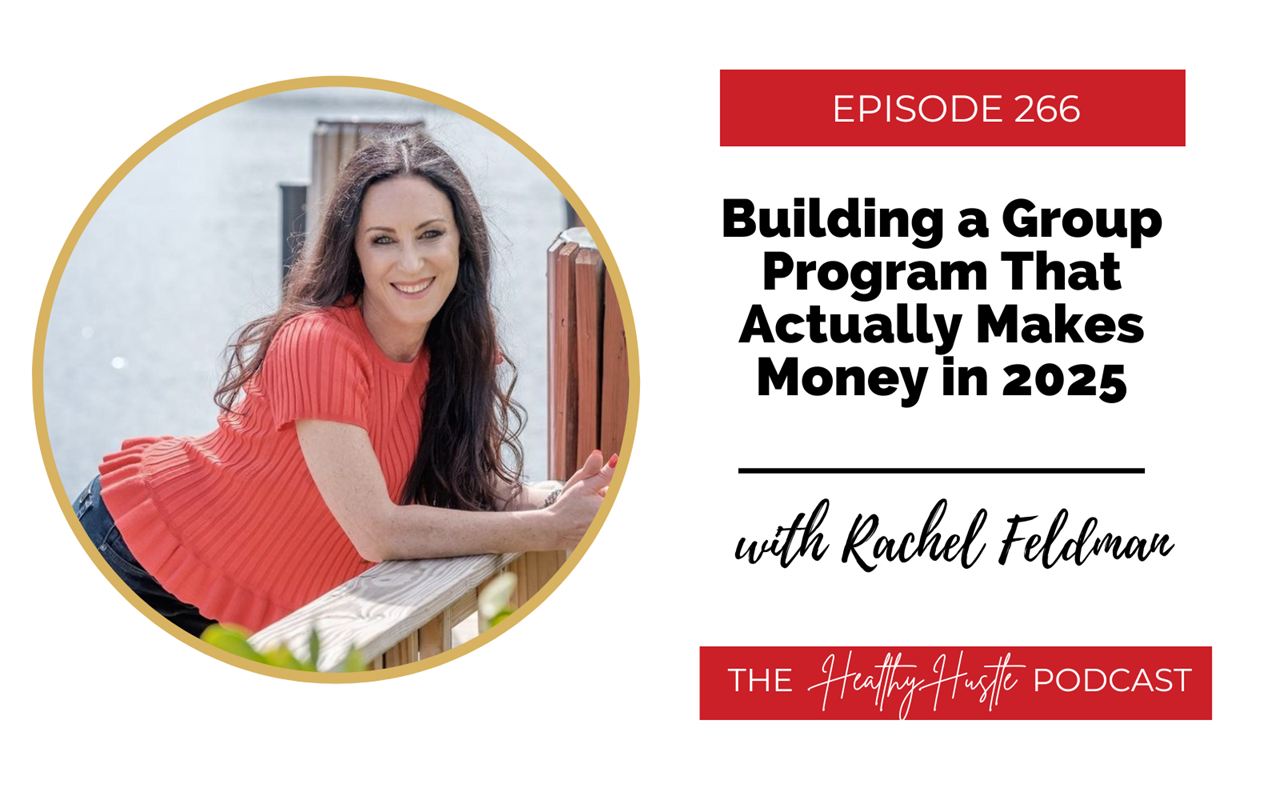As health coaches, our clients come to us with a range of symptoms or health issues they can’t solve. One thing I’ve noticed is that many coaches make the mistake of just going after the symptom instead of looking at the root cause. But what is actually causing our clients to feel bad?
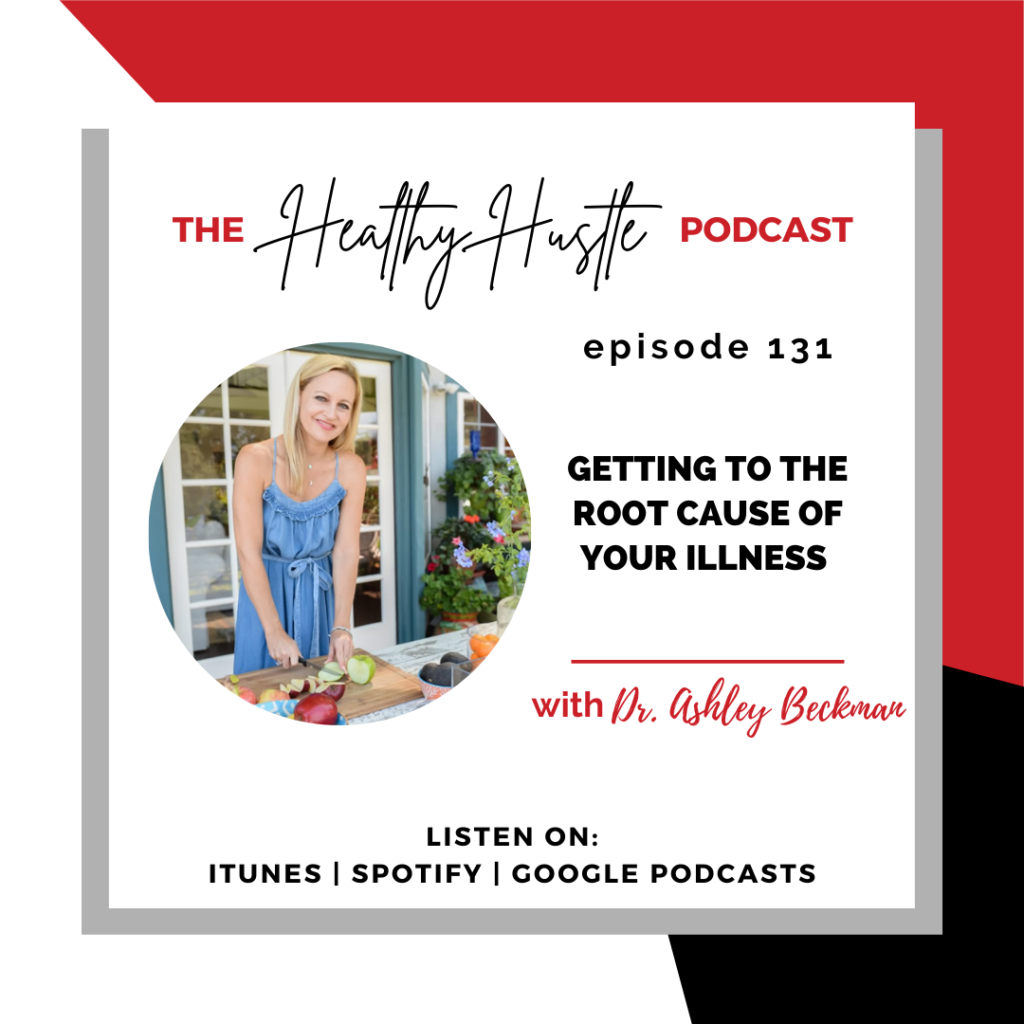
In today’s episode, I’m talking to Dr. Ashley Beckman, Doctor of Chinese Medicine, Functional Medicine Practitioner, and an Epigenetics expert that combines Ancient Wisdom with Modern Medicine to transform her client’s health. Dr. Ashley gives us all the details on what functional medicine is, why she focuses on the root cause of her client’s illness rather than just the symptoms, and why every health professional should do the same.
Connect with Ashley:
Ashley’s Website: https://drashley.com/
Ashley on Facebook: https://www.facebook.com/drashleybeckman
Ashley on Instagram: https://www.instagram.com/drashleybeckman/
Ashley on Pinterest: https://www.pinterest.com/goldenpathskin/
Rachel: Hey guys, I am extremely excited to have my good friend Dr. Ashley here, I’m not even going to simply introduce her, I’m gonna let her introduce herself because she has such a vast knowledge of health and wellness, we’re going to be deep diving into how she started her business, what her business looks like today then she is going to talk about the very thing that she does, because it’s something that you definitely want to listen to, especially if you’ve been dealing with long standing health issues. So Dr. Ashley, thank you for being here. Can you tell everyone a little about you?
Dr. Ashley: Sure. So I have been trained as a doctor of Chinese medicine, I started in homeopathy first, flower essences I wanted to get more of a traditional education, I guess, if you can call acupuncture traditional education. But I’ve always been interested in how emotions affect our system as well.
Chinese medicine is a really wonderful combination of herbs, lifestyle, food, and acupuncture and integrating movement as well as mindset. So I was gravitating toward that. I implemented in my practice today, still, I have transitioned to a virtual practice currently. I was in practice at a busy functional medicine doctors office in Beverly Hills for eight years. I saw over 50,000 patients there. So I was able to get a really wonderful grasp on acupuncture and Chinese theory and nutrition.
Now, I’ve combined that with my doctoral studies of epigenetics and how nutritional compounds can affect our genetic expression the same how we detox can affect our genetic expression. So I combined cellular detox epigenetics and traditional Chinese medicine theory for my clients that have generally chronic illnesses we want to get to the root cause of what’s actually driving that chronic disease and keeping it around.
Common Issues She Sees With Her Patients
Rachel: What would you say are some of the most common things that you see in your practice?
Dr. Ashley: So this has been both personal experience and what I’ve seen over many, many labs. With a lot of my clients are mold exposure, something that I work with a lot of my clients on, and I do find it more often than not a lot of my clients also have Lyme, or like some sort of Lyme co-infection in their past. Epstein Barr reactivation, which again, often I’ve seen is actually caused by something else. That is your system is weakened, allowing that to crop back up.
Rachel: Oh, I know that one all too well because that happened for me. It was such a pain in the ass. I could not get out of this cycle of feeling sick you are one of those people that actually suggested some of these other deep root causes.
Dr. Ashley: Because if you just chase each single bacteria, virus hierarchy, you’re missing the whole picture of why your system and environment is allowing these to flourish. So again, often I see mold parasites, which go with the gut health, and microbiome imbalances, Candida.
But again, Candida is often mold-related or other fungal and yeast overgrowth related. So a lot of us and that was me, I was chasing an anti-Candida diet for 20 years, living sugar, all these things. Again, once I actually saw some of the other big factors at play in my health and many other clients’ health.
You’re barking up the wrong tree taking the antivirals for Epstein Barr, which again, I love cat’s claw and all these things. But you need to see why is this happening? I’ve never seen one patient where everything boils down to one issue. We have multiple layers. If we had one issue would be super simple, you will get better quickly. But I have yet to come across that.
What The Process Of Functional Medicine Looks Like
Rachel: What helped you to formulate the system that you implement in your virtual practice? There are so many different tests, do you have a way that you layer tests in? I know that there are a lot of functional medicine practitioners who would love to hear that because they always struggle with that, especially when you’re starting your business. You’ve seen so many clients so it has really given you an understanding of what works.
Dr. Ashley: Yes. So I do love the organic acid test. Pricing can be an issue for a lot of clients so if they can only do one test, that’s the one I pick because we can tell so many things from it. But again, I’ve had more clients than not say Oh, I got that already. My naturopath said, I’m great, maybe there’s a little Candida. I explained to them, that I usually spend 30 to 45 minutes going over this test on its own.
So we dive deep and look at it in a different way than I would say most practitioners are trained in it. So I’ve been trained to look at it from the overall picture, looking at the different markers and then seeing what’s actually happening. We don’t just look at it like a regular lab test, where it says it’s high. That’s when you’re already in a diseased state.
It’s the same with functional labs, too. Just because it isn’t marked as high, but the whole page is about overgrowths, you need to take a look at that and see, are you in the optimal range? Or are you flat? So I use that. I use the mycotoxin test.
The Different Types Of Tests & Blood Panels
Vibrant America has an amazing tick and viral panel. So if you think you might have Lyme, co infections, some viruses are included on one of those. So that’s nice to see if they’re active let’s see what else to use. I don’t use still kids, unless someone really has an affinity and love for the GI map. We’ll do it. But I don’t ever suggest it.
Rachel: I think it’s actually one of the corner pillars of so many functional medicine practitioners.
Dr. Ashley: Yes, it is. So again, we don’t always want to be chasing after just a specific bacteria. We want to see what’s going on. Also for parasites, they almost never will come back. So they’re useless plus, you’re not catching any of the parasites and any other origins like liver flukes, gallbladder, lungs. They can reside all over the place. So I just tell people, I would much rather spend their money on something to help them than that particular test.
I have used the Dutch use that quite a bit if there’s a hormonal or adrenal stress cortisol issue. But again, a lot of these other factors will throw the hormones off. So I don’t generally do that in the beginning, because most of us are off hormones, sometimes the viruses. Again, overall, your hormonal system will not work properly if you’re overburdened with these overloads if you have something impacting your system on a much more systemic level like mycotoxin exposure.
Uncommon Signs You Don’t Associate With Hormonal Imbalance
Rachel: So with your clients and with the people that you’ve seen, what would you say are some of the uncommon signs? Because I think as practitioners, we often have our own health issues, we have our own health story, and I would love to hear yours. But what would you say are some of the uncommon signs that people don’t associate their hormonal imbalances with?
Dr. Ashley: A lot of times, it will definitely be mold exposure. They wouldn’t think that mold exposure can be throwing off their hormones. It also can impact how they detox, which then again, can affect the hormone system. They just don’t put the things together.
For example, another one that I see often is mold exposure and Hashimotos. It can be a root cause of that, but you’re going after thyroid antibodies and trying to optimize the thyroid without ever getting to the root cause of why is your thyroid reacting this way? Why is your immune system reacting?
There are even foods that can really impact that. So that’s a bit more common. People know about gluten and Hashimotos. But again, it’s so individual and so many layers that it’s not quite so easy to always say, okay, remove gluten and then the Hashimotos will go away. They are for some people, but not common for everybody. It’s a multi-layer issue.
Uncommon is trickier. All of these things actually fall under all of these different presenting diseases. They call Lyme the great imitator. The mold disease, mycotoxin exposure. If you look at the symptoms of Lyme, they almost all overlap. Then you have some that are very specific for thyroid and hormonal issues.
But again, even looking at low hormones versus excessive hormones with estrogen dominance, that’s very confusing as well, because you can have some of the same symptoms. Even on a Dutch test, you can actually have low amounts of estrogen but still the estrogen dominant when it’s just the ratio of them. So, it’s really confusing.
I’d say so many people have joint pain, brain fog, headaches, migraines, obviously major food sensitivities that is just off the charts. Now that we’re becoming more and more sensitive to all types of foods and big categories histamine issues are becoming more and more popular I feel like everyone’s chasing a diagnosis.
I’m not as concerned of what somebody has, but why they have it. Mitochondrial issue, what’s impacting your mitochondria that are causing this to happen? Are parasites or mold, impacting your immune system function?And then allowing all of these bugs and spire Keats and things to flourish viruses?
Dr. Ashley’s Journey To From Illness To Wellness
Rachel: Tell everyone a little about your own story and what led you down this path?
Dr. Ashley: Sure. One day, I’m maybe 25. I think I woke up and it really hurt to walk. My ankles hurt so bad. It was if I’d sprained both my ankles. So I went to my regular GP, and she said, Oh, you probably have some sort of autoimmune thing, because your grandmother has lupus and had RA and nothing will probably show up on labs for maybe 10 years, if it ever does.
I said, Okay, but what do I do about it? Oh there’s nothing to do, you just wait and see. I said, Well, what about diet? And she said, nothing. There are some people that don’t eat nightshades. At the time, that was the thing that she didn’t really even know about much anyway. But she said, there’s usually an arthritis diet. You could try this.
I’m 25. I was just starting acupuncture school, so I was thinking, well, this is not right. There must be something I can do. So at that point, I was looking into removing gluten and dairy. That really helped. But as soon as I ever ate it, it came back. So it would hurt, hold my cell phone anything. I also had migraines at the time, too.
So one day, many years ago now, 10 years ago, I had one so bad I vomiting. I had to leave my office in a wheelchair because I couldn’t stand up. I was just throwing up, it was all from a migraine because because I had eaten this delicious sandwich an hour earlier. I just thinking this is crazy, I can’t function or work from seemingly what I thought were food.
I also had lots of chronic neck pain and things like that. So anyway, as my years have progressed, and realize it’s not necessarily about the food. The food is like throwing gasoline on the flame that’s already burning. It was just food for these critters in my system that would create toxins after I fed them basically. Or when I would kill them with antimicrobials and things.
So I learned more and more about the different layers of this, but I went the traditional route and tested heavy metals, tested epstein barr, which I didn’t have. I ended up getting Hashimotos and then when I’m at thyroid medication, but that’s been since resolved and gone. So thyroids all back to normal. But I would get these chronic joints were weakness, and migraines and things like that.
Now, through various practitioners that I’ve studied with, I have focused a lot more on the different layers of detox and things that I really hadn’t addressed then when I added in the epigenetics piece. I could see why I had some weaknesses in areas of detox, and then also why certain things were more impactful for my system than others so that helped me guide my protocol in a more impactful way.
Why Hormonal Issues & Food Allergies Are On The Rise
Rachel: You are 25 years old. I know I had my health crisis at 25. In your opinion, what are some of the factors that we’re seeing on why we have so many food allergies on the rise and hormonal issues? What’s really impacting this world?
Dr. Ashley: Most people are familiar with the body burden or the toxic bucket picture. The thing is, there’s only so much the system can take. Unfortunately, in our world, we have a lot of exposures. So I was an emergency C section baby. At the time, my mom was informed by her doctor that formula was better than breast milk.
So I was formula fed. I was sick all the time with strep infections. So I was drinking that bubble gum amoxicillin a lot as a child and grew up in Texas. In the south there was lots of spraying. We used to use Off! all the time on our body, which my dad still does. I grew up in the 80s, it was we ate well. You would have Slurpees and Cokes.
So as an adult, that changed. I noticed that I was sensitive to perfume. Even in high school, I would hug a friend, and they were wearing Escape or something, and I would get a headache. I thought that’s so weird because nobody else is that way. It got worse and worse. I remember after college, I threw away all my perfume because if I would put it on, I got a headache pretty quickly.
So then I started researching about skincare, chemicals, and perfume and went down all of that with plastics, which is again, why I’m so against plastics and chemicals that disrupt the hormones. I ended up with a fibroid that was very large.
So looking into all those things that create this. How the estrogen can feed things again, something else too. This is a big thing. That’s it’s not my specialty. But other people have amazing information just on this. The birth control pill. I was on that maybe almost 20 years. and I think that had an effect. I got off birth control and my period didn’t even come back right away. It often can take up to a year, which is crazy, But I do think that that was another for someone who’s so clean, predominantly. But I did take one medication for 20 years, almost.
We don’t realize. Even skincare, before a woman gets out the door, she’s put on over 200 chemicals just on a very basic routine, even if you’re minimal. I was looking at that because that’s something that we can control. We pick what goes on and in our body.
Some of the things in the air and the water, it’s a little bit harder to have that always be cleaned, because you can’t always minimize that exposure. But that was a really big area that I switched up. I love helping people switch to because it’s really important to me to take control of.
But there are so many things you can’t control. Even if you eat organic, when you go out to restaurants, it’s hard. I eat grass fed meat. But when I go out to eat, it’s not right. So the things that are seemingly health foods aren’t really in an uncontrolled environment. So there’s a lot we can do then there’s a lot that we can’t
Rachel: Reminder to clean up your products.
Dr. Ashley: I was so adamant about it. I started a skincare company with my best friend in acupuncture school, and we had everything in class. No chemicals, besides no non toxic chemicals. Because everyone says, oh, everything’s a chemical. So I understand that. But with nothing, no preservatives, and it was all basically edible. I’ll plant everything and in glass, really crucial about that.
I’ve been on a mission for a long time to help people clean up just that part, especially for them when they haven’t had kids yet. People wait till they’re pregnant to start putting on clean products or once they’ve had a baby. I’m thinking oh my gosh, all when you were pregnant, though, but you know that the baby absorbs toxins that help protect the mom. So when she’s eating things, or putting things on her body, that’s the baby’s job. So these children are coming out with all that.
We’ve seen the cord blood studies They have so many chemicals just before they’ve even begun I think that is one of the biggest things. So many kids have food sensitivities and full-blown allergies now. Lactic reactions. It’s just more and more. My daughter’s nine and when she was in preschool, you weren’t allowed to use anything with nuts. Because there were so many kids that had no reaction.
When I was a child, I didn’t know anybody that had that. I knew maybe one person that had that issue, but it was so far in between. Now, I have friends and their child has to carry an epi pens in case something happens. For the moms and dads that have children like that, it’s so scary.
We think that people are aware, but you’re really not. Every time they’re going to a birthday party or even off to school, something really potentially horrible can happen because their child is so sensitive and so hyper-reactive.
Lessons Learned From Taking Her Practice Virtual
Rachel: I definitely saw a lot of that in my business as well I worked with families. That was one of my biggest income-producing issues. They had so many kids that had allergies, gut issues and allergies. So tell me about for a coach listening who has their business and they want to take it virtual. What are some of the lessons that you learned from doing that?
Dr. Ashley: I had been doing it for a while before all of this happened. People didn’t know what Zoom was. So it’s actually much easier at this point. People have at least seen how it can be convenient, especially if you’re a parent and you live in a big city and it takes forever to go drive to an appointment, have the appointment, come back and still pick up kids in one day. It’s almost impossible.
I would say focusing on the ease of that, especially for parents or moms, it’s really nice to be able to do it in half the time with the child sitting on the mom’s lap or something, right when you have an appointment if you need to do that.
I sought out someone to figure out how to go virtual and that was really, really helpful. It was fun to be around people that had the same vision. So as an acupuncturist, it seems impossible. Why would someone go virtual? Everyone always asked me, How are you virtual if you’re doing acupuncture? So then I explained that I don’t really do acupuncture anymore. I have this functional medicine practice, and focus more on long-term cellular detox with clients.
I think the thing is really getting into what your specialty is. Because in the online space, there’s so many people, but no one will do it how you do it. Your unique combination of what you bring to the table. But there are a lot of systems get in place, as you help people with that all the time.
Rachel: Maybe having some sort of a team because you can’t do everything.
Dr. Ashley: Because a lot of us are practitioners and not necessarily into marketing, there’s so much admin to do on the virtual side of a practice as well as in an in person practice. So I would say having a VA or something is also really important to help you. But again, you have so much information on structure and systems and options. Because it is a lot.
What An Virtual Onboarding Structure Looks Like
Rachel: How do you structure your sessions if somebody comes to you and they are signing up. What is your onboarding?
Dr. Ashley: I used to have a complimentary discovery session. I just don’t have it on the website. But I will do that for a referral or somebody that I know just to see. I have an initial consultation that’s anywhere from 45 minutes to 60 minutes and then I have options for private one-on-one coaching. I have six to 12-month options or longer and then I have an online digital program that’s more of a six-month gut health reset.
So it’s all based on root cause medicine. But for the people that aren’t that sick or they just want to clean up their diet and feel better. Again, that’s more of the hormonal issues in there. But when people have chronic layers of Lyme or mold exposure or just a mystery illness, they don’t know what’s wrong, they don’t have a diagnosis. That’s my favorite thing is to solve the health puzzle. Get to the layers and then implement their program. But that’s one on one coaching because it is very complicated.
A lot of people come after seeing multiple practitioners, and I hear this a lot, they’re like, but my doctor doesn’t deal with mold, I said, yeah, that’s why you need to come to someone that knows it, because I see what people have been given honestly, it’s not going to work. There’s a lot of information. Information is changing all the time, on what works, what doesn’t. Everyone is very unique, too.
How To Know Which Offer Is Right For Your Client & Telling Them
Rachel: So what might work for somebody else? What needs to be tweaked for another client based on all their individual needs? I really appreciate you answering that, because so many coaches have such a tough time developing that onboarding process for people on what works. I love that you differentiated between who is ideal for what program, and really knowing that.
Dr. Ashley: It is hard for financing. I wish I could help everybody. I wish I could put everybody into my digital program, but I can’t. I had to get better at saying to them, and knowing it and they might not be able to do it and say, honestly, that program is not going to work for you. You need more support them that.
Rachel: Yep it’s I think there’s the people that they want to support, and they maybe have the funds to do it, then there’s a lot of people that I thought they need more, and they don’t have the ability to do it at that point. It has been harder for me to say honestly, I don’t think that that’s that this is what you need. But it would be doing them a disservice if not.
Dr. Ashley: It is. It’s so against my nature. I just wanted to help everybody and then discount it. Well, let’s figure out how to make it work. Honestly, it is so much work when you’re working with someone one on one. They need that time from me. So it is a big commitment. But again, they’ve been sick, honestly, mostly for decades, and the things they’ve been doing haven’t been working.
Rachel: I love that part of the confidence that has to come in when we’re building our business. I know that I dealt with that attitude where I’ll discount somebody then what I realized as there wasn’t the same skin in the game, as if that person came and paid fully. Sometimes there were people who just needed a jumpstart. They needed much more. But they were at least trying to get some pieces of the puzzle solved.
Dr. Ashley: I created this program because I can’t work with everyone and they can get out quite a bit of information. There are different ways to go about it. People have different price points that they can implement it whatever time. I haven’t implemented scholarships or things like that yet. But I think there’s the exception when you have somebody who is really in it that hasn’t invested. But often they’re not. It is a bit challenging again, I’m getting better, much faster when they have these chronic things again, it’s not realistic for them to expect that.
Rachel: I love this open conversation about your business, your story I think so many of the other health issues that are happening. I know many of us, as coaches, we make the mistake of just going after the symptom instead of looking at the root cause. So tell everyone who either needs to hire you or is referring people to you where they can find you.
Dr. Ashley: I’m on Instagram as DrAshleyBeckman and my website is Drashley.com. There’s a lot of information on there but if you want to see Instagram Lives and how I interact or have people on that’s a great place right to get some information. You can just reach out and email me and we can set something up.
Advice For Coaches Going Virtual
Rachel: What would you say is your biggest piece of advice for that coach who is going virtual?
Dr. Ashley: I would say find somebody that shows people how to do that. There are so many moving pieces. How do you implement it? Do you have training on that at all?
Dr. Ashley: There’s a really lovely group, there’s Dr. Isaac Jones, he has something called Health Experts Alliance. When I saw his information four years or plus ago, I was like, that’s exactly what I want to do. He has a structure, the framework and it’s a lovely group of like-minded practitioners that get the same vision. They don’t want to be the chiropractor in an office that’s high volume. They want to have their online program or have both.
There’s a lot of people that have both, while they’re building, which is what I did for a couple of years. Because it is a big transition, it’s not like you can just all of a sudden have a virtual practice, while removing your brick and mortar. I wouldn’t necessarily suggest that unless you had a nice savings, and then we’re investing in the new online mentor.
Rachel: I love the part that you brought up that I think is such a great place to close, which is that clarity that’s required when you’re in the online space, and for you to get really niche down and specific on what you are offering to set yourself apart from other people. I think that’s an important part. Some of that also comes with our confidence, and our coaching style and learning. Not only what lights us up, but what we’re really good at.
Dr. Ashley: Also, obviously, with all other practices that we treat so many things. In 12 months, I’m covering gut parasites, mold, possible Lyme, metals, radiation, viruses. But do I talk about that all the time? No. Because you need to focus the marketing on who’s going to come to you, and for what reason.
Even with mold exposure, almost every single client that has come to me didn’t know I had it. So then you’re in this issue of well, do I focus my marketing on mold when all of my clients actually, none of them came to me for that? I’m the one that said, I think you have this. So it is very interesting.
Why Niching Down Your Focus Is Beneficial
I do find that people have the most success, in that regard. You do have to niche down your marketing because you need to find the people that you’re speaking to, and that are seeking out help in what you offer, even though you offer support in many areas. So then you talk about that all the time and niching down.
Rachel: We had that conversation how many times? But I love this. I do this too. If you talk to anyone in another world, too, that doesn’t understand marketing. They’re like, why would you put yourself into a corner? You only talk about this, but you do act like a general practitioner so it’s very interesting, but marketing wise and focus. That’s what is required and beneficial.
The most important is you’re so clear on your ideal client’s pain points, and what is a problem for them? Knowing that, and being able to express that in our marketing, but most importantly, figure out why she buys? Why is he actually going to buy that program from you? Does is it set up to make the most wins for her?
Dr. Ashley: That was the transformation that is created. Do they see themselves in what you’re putting out? I’m sure there are some people that work in a niche that’s not something they’ve been through. But for most of us, we are the ideal client and I think that can be helpful.
But then again, if you have some clients you can ask and say what was it that got you to actually sign up with me or thought that I could really help you? The confidence piece is a big one because there are some clients I talked to and I’m like, this is exactly what I do. We’re hands and we can resolve this. It’s gonna take a while, but we can resolve it.
Why Websites Are Still Relevant For Businesses
Then, other people, it’s very interesting, because people look at different places. So am redoing my website because it hadn’t been done in three or four years. And multiple people said, Oh, you don’t talk about mold on there. I’m thinking do people read websites anymore? But my Instagram, it’s all over the place. So I don’t know. You know what? I have focus because you hear these things like email marketing that no one looks at a website, but they do.
Rachel: I think they do. If you can get somebody to your website and have a great prominent opt in freebie that solves your problem or brings them in on what is there a desired outcome, people are gonna stay there and read it.
I always read homepages and about me, and that was way before I even became a coach. If I was gonna hire somebody, I definitely was gonna go and investigate them. But I think we get into the new thing. Instagram for some people or Facebook, whatever it might be has video or it has things that were it’s a different way of digesting information, but it’s not a lot of information. But people feel like they have a bit more of a glimpse into your world.
But the website, that’s where all the things you’ve studied are. You can talk about your theories and the things that people I feel do actually really need in order to sign up for the others more of maybe an impulse. But so yeah, I think it’s all important. But again, I had veered away, because I just thought, two people look at that. But they 100% do so.
Rachel: And you’ll probably add some updates about mobile because I do think it’s one of those things. When you start talking about it, people are really interested.
Dr. Ashley: I talk about root cause all the time people but so many people don’t know what that is. So we get stuck in our language of being in this health world. We know what things are. But in general, you have some patients that are very informed and then you have other patients don’t know the terminology. They just know they don’t feel well. They don’t know why. So I think you have to cater to all of that it makes sense that your website needs to reflect what you’re doing right now. So I did that last week.
Rachel: So an update for the website, I would definitely add in some mold. I think what’s really cool is when we actually are on your website, it says, what is a root cause?
Dr. Ashley: Yeah, I have a whole I have a page on functional medicine page that has this lovely graphic with all of the things that people think they’re treating, but they’re all symptoms and then what are the actual possible options of that are all creating the layers that we need to address it or look at. So a nice combination of a visual with a graphic with a lot of information, because people do absorb information differently.
Rachel: I’m one for graphics and to have the verbiage there because we are very visual people. I’m so glad that you updated your website. All right, guys. If you are struggling in your own health issue, I always say hire a coach. Find a really good one. Dr. Ashley is definitely that person. I would suggest checking out her Instagram because she does have a lot of very amazing high-value stuff that you would definitely be interested in. So thank you so much for being here today.

